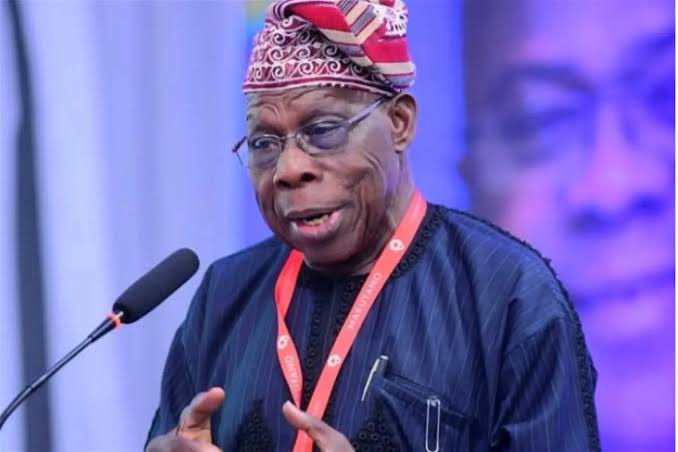Former President Olusegun Obasanjo has described as ‘unacceptable’ the decision of three to five judges to overturn the decisions made by millions of voters during an election.
Obasanjo, who spoke at the high-level consultation on ‘Rethinking Western Liberal Democracy in Africa’, held at Green Resort Legacy, Olusegun Obasanjo Presidential Library, Abeokuta, in Ogun State, faulted what he labelled as ‘cathedral pronouncements’ by the judges.
The former President was reacting to the ongoing judgements of the Court of Appeal on the electoral disputes arising from the 2023 elections in Nigeria, which have led to the sacking of three governors.
The affected governors are Dauda Lawal of Zamfara State, Abba Kabir Yusuf of Kano State and Caleb Mutfwang of Plateau State.
However, reacting to the verdicts, Obasanjo said the powers vested in the few judges are “totally unacceptable”, cautioning political leaders on the dangers of injustice if the trend is not reversed by the Supreme Court.
His words: “I believe whatever form of democracy we have or whatever system of government we have, three or four men in the judiciary should not be able to overturn the decisions of millions that have voted. Now, we have to find a way to handle that. I don’t know what the way will be but, for me, I think it’s unacceptable that millions (of votes), maybe 10 million on one side, maybe 9 million on the other side. Then, you have five people sitting down, three of them agree, two disagree. And you come up and make cathedral pronouncements that cannot be changed; I believe that should not be accepted.
“How do we do it? I don’t know. But whatever form of democracy we have, we should look at how to handle this. If you say ‘go again for election,’ then, what happened to the previous election? I don’t know.
“So, I feel strongly about. It does not matter what you say about the judiciary, but only five people or seven will sit down. If there are five, three may agree, two may not agree, and the decision of three will be final.”
Speaking on what he tagged, the ‘Nigerian factor’, Obasanjo said he is not always comfortable with the phrase, ‘Nigerian factor’, when discussing democracy and other issues affecting development.
He said: “When things go wrong, you say the Nigerian factor. The first thing I learned in politics was this thing I called the Nigerian factor. In 1998, we had the first local government election. We had parties, and here in Abeokuta, we met in my office and they came up and said, ‘Look, this is money for INEC, money for the police.’ At a stage, I said, ‘What nonsense! Is police not being paid and INEC too?’
“They said ‘that’s how we do it. I said ‘You cannot do that.’ So, they didn’t do that. And of course, we lost all the local governments. We lost all. And then they came to me and said, ‘Baba, you see? If you had allowed us to do it the way we used to do it, we would have won. And I felt guilty.
“During the next election which was State Assembly, I just stayed in my house. I said ‘Well, do whatever you want to do, I will not be part of it’. So, I didn’t even go. But, the result was the same. One of the people who got money didn’t even distribute it to where he was supposed to distribute it.”
